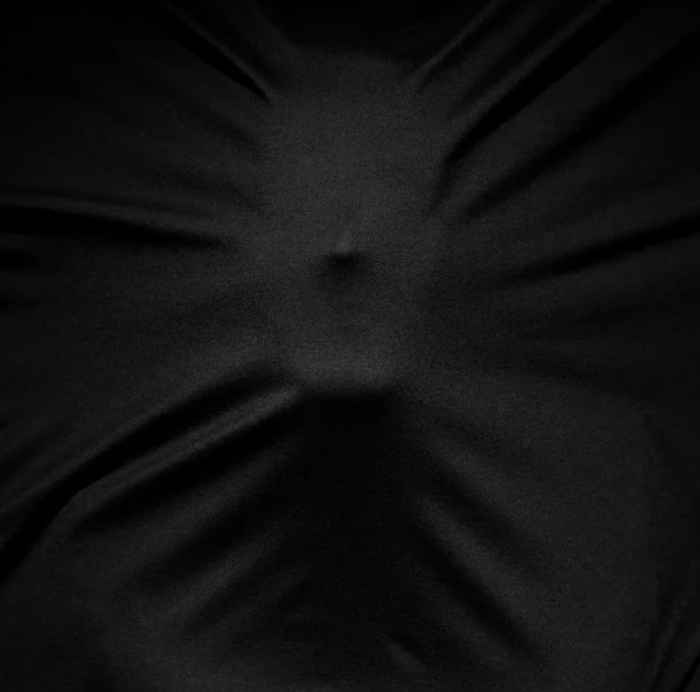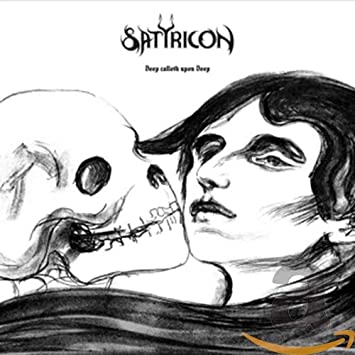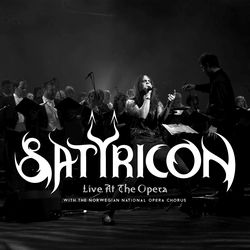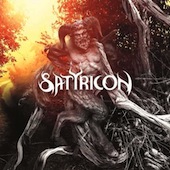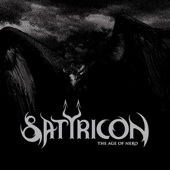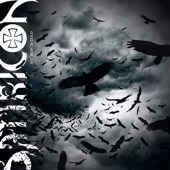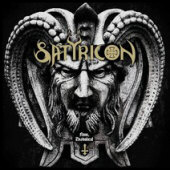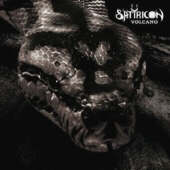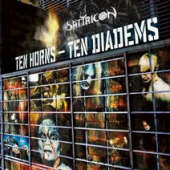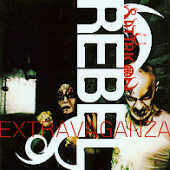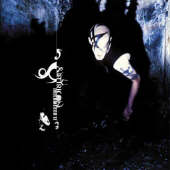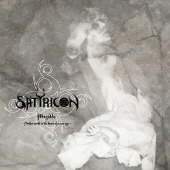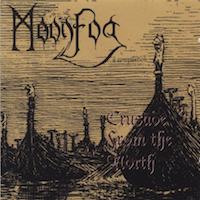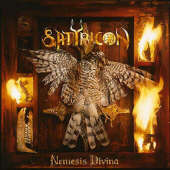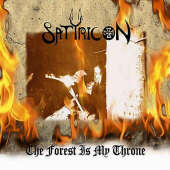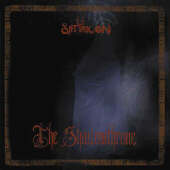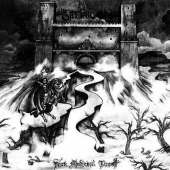Satyricon - Interview
After a seven-year hiatus, Satyricon is about to return to Brazil, with confirmed shows in São Paulo (11/13) and Brasília (11/14). In the interview you are about to read, drummer Frost expresses great anticipation for this reunion, highlighting that the band brings a "better and more intense" version of itself, ready to offer the South American audience, known for its passion and intensity at shows, a unique experience.
Speaking of unique experiences, in 2022, Satyricon also embarked on a bold artistic and musical project with the album "Satyricon & Munch," inspired by the work of Edvard Munch. Frost shares that vocalist and multi-instrumentalist Satyr conceived this work after a strong connection with the dark and disturbing atmosphere of the iconic Norwegian artist's paintings. For the drummer, this unique, entirely instrumental album marks a new creative phase for Satyricon and leaves a lasting influence on the band's trajectory, which is already projecting a next release.
Marcelo Vieira
![]()
This will be Satyricon's third time in Brazil. What are your expectations for this return?
Yes. I think that Satyricon is the type of band that doesn't really stand still. Since a lot of time has passed since the last time we were there, we also feel that Satyricon is quite a different band now. It's always exciting to see how people react to our music, especially since time has passed since we last visited a certain place. The fans are going to be, to some degree, different. There will be some people who have seen us before, but probably many who have never had that chance, and some who were too young to see us the last time we were around. We have new music, and I guess we sound a little different, and we have a different lineup, too. So my expectation is that we will see a crowd that is typical of South America, meaning probably the best fans in the world. We hope they will enjoy the way Satyricon sounds and feels today, and we think we are bringing them the best version of Satyricon that has ever existed. We always strive to get a little better. So our expectations when going out live are always very high, and as I said, South American fans are really special to us. That means we are definitely looking forward to this one.
Do you have any memorable memories from when the band came in 2011 and 2017?
We've had a good time every time we've been to South America, and that goes for these previous tours as well. What we perhaps wanted most of all now that we'd brought the live band back on its feet again was to experience South America. We haven't played live since 2019, so it has been quite a long time. It's even longer since we were in South America the last time, so we are particularly excited that we can go back there because we've always had a good time there before.
What was the creative process like for it?
This was something completely different from anything else we've done. The whole idea for that piece of music was also connected to the exhibition that was done at the Munch Museum in Oslo, Norway. Satyr said that he was out walking in the woods sometime in 2018, and we were done with the touring cycle for Deep Calls from Deep. I guess he was pondering what he wanted to do next, and for some reason, he felt this very strong connection with the painter Edvard Munch and the feeling of his works—especially all the darkness, anxiety, twistedness, and weirdness in all those paintings. He also felt a strong connection to Munch's legacy and perhaps most of all to his spirit and the kind of person he was. It dawned on Satyr that he wanted to create a musical piece that was very connected to Munch—not only in terms of inspiration but perhaps with an even stronger connection. He started to toy with the idea that perhaps he should try to set up an exhibition with some hand-picked Munch works and let that be the foundation for a piece of music that he would make from scratch. This would be very different from anything he had done so far, but which would somehow resonate with Munch's expression and all the sorrow, darkness, and weirdness that lie within those paintings.
He told me that when he got that idea in the first place, he intuitively felt he had to do some work connected to Munch, but he wasn't sure at all what kind of music it should be or how he should proceed. He just trusted that if he gave this little time and put effort into it, he would somehow succeed in eventually coming up with a very fine piece of music that would be enriching for him and possibly for the listeners as well. I also know that he was a bit uncertain whether it should be a Satyricon work or something just by him, you know—a personal piece of music like Storm or Wongraven as opposed to Satyricon.
I think that when he actually started making music for this idea, he was still uncertain. He had been working for at least a year or a year and a half before he realized that this was actually going to be Satyricon's next work. He felt that even if this is very different from anything that Satyricon has done, he connected it to Satyricon's spirit as much as Munch's spirit, and he felt that this was beyond something that was just his private musical project. He felt that this should be integrated into the Satyricon world and perhaps contribute to taking Satyricon in a rather different direction, adding something to the Satyricon universe that belonged there but which also expanded it quite massively.
So when you understand that kind of beginning, you can also see that this has a lot to do with Satyricon's ideas. Nobody else was really that involved. I was invited to lay down some drum parts on a couple of occasions, which I did, but most of all, this was Satyr's own work. I was invited to take part in that universe much later when most of the music was already created and most of the ideas were in place. Satyr had been working day and night on this project, partly on his guitars and partly on Moog synthesizers and other instruments. He had been inviting guest musicians to come help him out and basically found a very different model for Satyricon—one that I must say I'm impressed by. When I heard the music he created and they started making these first demos, I felt it was fantastic stuff. I understood very well that we couldn't have conventional drums or anything on this album, and we ended up having no vocals on the album, which also makes it stand out quite a bit. But I feel that Satyr is correct in saying that you can really feel the Satyricon spirit in that album, and I think it will also have a great effect on the music that we are currently making for a new album now. So the Satyricon & Munch piece has meant a lot for Satyricon's development and where we are going after it as well. I now think it's an integrated part of Satyricon's legacy as a band and of our musical history.
Can we expect new material from Satyricon soon?
Well, we have made a lot of music over the last year and a half—or perhaps even more than that. I guess we have more material than what could fill an album at this point, but we aren't finished with it. I guess that we will start recording material for a new album pretty soon. The thing is that prior to this summer, the new album was basically our main project. Satyricon and I usually meet up at the rehearsal space several times a week to rehearse new material. We had come pretty far in that process, and then it turned out that we got a lot of interest in having Satyricon perform at various festivals. We also understood that we needed to establish a live band again because we didn't really have that after 2019 due to the history with the pandemic and what that meant for the possibilities of playing live. We felt we needed a live band at the time, so we wanted to concentrate on other things, like the Satyricon and Munch work that I have been talking about.
Following that with a new, shall we say, more conventional album as well was not part of our plan. So we didn't really think we should concentrate as much on doing live music, but since there was so much interest and since we started to establish a live band again, we saw that this would also take a lot of time and resources. It would also involve so much activity that it would make it more or less impossible for us to just continue making this new album. We needed to get the live band up and come and bring it up to speed because Satyricon today needs to meet very high international standards. We have brought in some high-profile musicians to be part of Satyricon's live band again, so all of that meant that at the end of spring, early summer this year, we started to focus on doing the live business instead. We decided that we should just put the new album a little bit on hold because when we work on that, we really need to concentrate. We can't do new album rehearsals one day and then rehearse with the live band the next day because it kind of ruins the workflow, and the two different tasks do not really help each other. So we are slightly back in that process again now, but since we're also going to South America, we will continue to focus on touring for a little while, and then we will get back to work on the new album as soon as we're back from Latin America.
Norwegian black metal was marked by tragic events that occurred in the 90s. In your opinion, did these events overshadow the music and art behind the genre, or, on the contrary, contribute to its myth and popularity?
Yeah, I think it's difficult to say it is one or the other. I think perhaps it's more than the latter. To us, music has always been the main priority and focus. Satyricon has never been about sensationalism; it has not, you know, been about crimes or tragedies. We have always tried to make good music, to become better and better at what we do. We try to learn, observe, and improve, and we strive to bring resources into Satyricon that can help us evolve and become a better band.
As for the legacy of the Norwegian scene, I guess that the early 90s were very vibrant times, and some rather extreme personalities were part of the scene. A lot of those extreme incidents that we experienced were part of that. Perhaps it had something to do with the spirit of the times and the very explosive nature of what was going on. The fact is that this was a rather painful and violent birth of a music scene that was to become very potent. That's how I see it.
Sometimes these births are very painful, but what remains is a fantastic style of music that didn't exist before the Norwegian scene was introduced to the world in the early 90s. To me, it's very special that so many bands from such a small country have made such a mark on the world. I feel that music is still very much alive today, and in Satyricon, we feel that the spirit is as vital now as it was in the early 90s. We have tried to carry the flag onward and ensure that the flame burns within us as strongly today as it did when we were kids in the early 90s.
That means that no matter how we regard it, it is a very vital and outstanding musical genre, and I'm proud to be part of it. I'm still connected to it in a way that means I have more or less dedicated my life to this style of music.
If you could go back in time and give younger Frost some advice, what would it be?
Probably, I mean, there's so much advice that I could offer because I know many things now that would have been helpful to know when I was younger. But on the other hand, one must also be given the chance to learn and evolve; you cannot really learn everything at once, no matter what. Trying to learn the basics before attempting to do the most extreme stuff is always a good idea. It's also important to understand what it means to be part of a band. You shouldn't only pay attention to yourself and your own instrument but also pay a lot of attention to those you are playing with. Try to understand how you can contribute to making the music better.
That often means that instead of doing a lot, sometimes it's better to do less and let other instruments shine. During the first years, I had no understanding of that at all, and I feel that my drum playing suffered because of it. I wish I had known a little more about it when I was younger.
What message would you like to leave for Satyricon's Brazilian fans?
I hope to see you at our shows when we come to play. We travel a very long distance to get to you, so I hope that you will come to our shows when we are there. We're going to have some magical experiences together. It might be a long time until the next time we turn up there, so seize the chance, come see us, and share some fantastic moments with Satyricon.
Discography
Upcoming Releases
- Morrath - Obscure Abominations - Feb 25
- Chalice - Divine Spear - Feb 27
- Blackwater Drowning - Obscure Sorrows - Feb 27
- Vide - Aux Enfants Des Ruines - Feb 27
- The Leaving - The Leaving - Mar 06
- Serpent Icon - Tombstone Stories - Mar 06
- Insect Inside - Reborn In Blight - Mar 06
- Triumpher - Piercing The Heart Of The World - Mar 06
- Lömsk - Act II - Of Iron And Blood - Mar 06
- Monstrosity - Screams From Beneath The Surface - Mar 13
- Against I - Anti Life - Mar 13
- Empire Of Disease - While Everything Collapses - Mar 19
- Putred - Blestemul Din Adânc - Mar 20
- Gaerea - Loss - Mar 20
- Diatribes - Degenerate - Mar 20
- Zerre - Rotting On A Golden Throne - Mar 27
- Foetorem - Incongruous Forms Of Evergrowing Rot - Mar 27
- Cryptworm - Infectious Pathological Waste - Mar 27
- Antrisch - Expedition III: Renitenzpfad - Mar 27
- Cruel Force - Haneda - Mar 27

